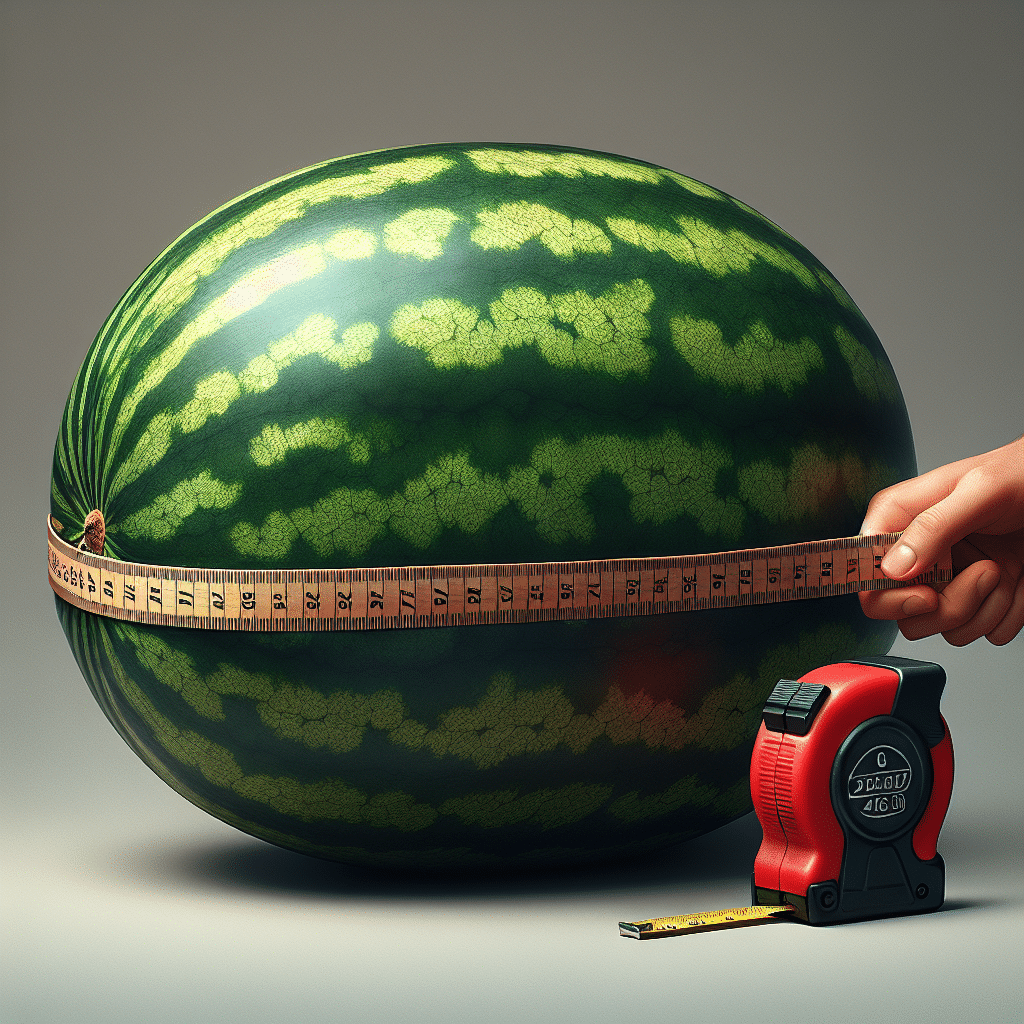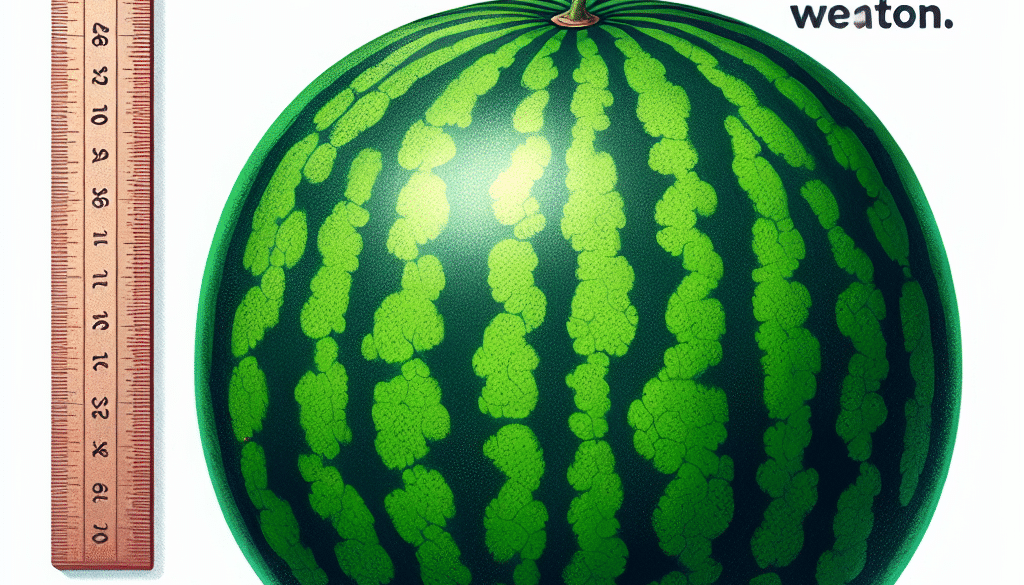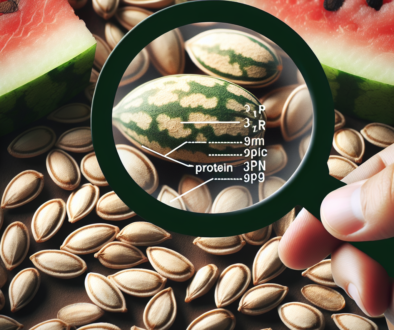Average Size of a Watermelon: Know Before You Shop
-
Table of Contents
- Average Watermelon Size: Essential Shopping Guide
- Understanding Watermelon Varieties and Sizes
- Factors Affecting Watermelon Size
- How to Choose the Right Watermelon Size
- Case Studies: Watermelon Size in Different Regions
- Statistics: Watermelon Production and Size Trends
- Conclusion: Making an Informed Watermelon Purchase
- Discover ETprotein’s Watermelon Seed Protein Products
Average Watermelon Size: Essential Shopping Guide

When it comes to purchasing watermelons, size does matter. Whether you’re planning a summer barbecue, a family picnic, or simply need a refreshing snack, understanding the average size of a watermelon can help you make the best choice for your needs. In this comprehensive guide, we’ll explore the factors that influence watermelon size, the different types available, and how to select the perfect melon for any occasion.
Understanding Watermelon Varieties and Sizes
Watermelons come in various shapes, sizes, and colors, with each variety offering a unique taste and texture. The size of a watermelon can be influenced by its species, growing conditions, and the time of harvest. Here are some common types of watermelons and their average sizes:
- Personal or Mini Watermelons: These small, round melons are perfect for individual servings. They typically weigh between 1 to 7 pounds.
- Icebox Watermelons: Named for their ability to fit inside a standard refrigerator, icebox watermelons weigh between 5 to 15 pounds.
- Picnic Watermelons: These are the traditional watermelons that are ideal for large gatherings. They can weigh anywhere from 15 to 45 pounds.
- Giant Watermelons: For those who love a challenge, giant watermelons can exceed 50 pounds, with some record-breaking specimens reaching over 200 pounds.
It’s important to note that within each category, there can be significant variation in size. For example, the popular ‘Seedless Picnic’ variety often weighs between 10 to 20 pounds, while the ‘Crimson Sweet’ can tip the scales at around 15 to 25 pounds.
Factors Affecting Watermelon Size
Several factors can influence the size of a watermelon, including:
- Genetics: The genetic makeup of a watermelon variety plays a crucial role in determining its potential size.
- Climate: Watermelons thrive in warm climates with ample sunlight. Regions with longer growing seasons tend to produce larger melons.
- Soil Quality: Fertile, well-drained soil rich in nutrients is essential for growing healthy, sizable watermelons.
- Watering Practices: Consistent and adequate watering during the growing season is vital for the development of large, juicy fruits.
- Pest and Disease Management: Protecting watermelon crops from pests and diseases helps ensure that the fruits can reach their full size potential.
How to Choose the Right Watermelon Size
Selecting the right watermelon size depends on your specific needs. Here are some tips to help you make the best choice:
- Consider the Occasion: For individual consumption or small families, a personal or icebox watermelon is sufficient. For parties or large gatherings, opt for a picnic or giant watermelon.
- Check for Ripeness: Regardless of size, a ripe watermelon will have a creamy yellow spot where it rested on the ground, a dull appearance, and a hollow sound when tapped.
- Assess the Weight: A watermelon should feel heavy for its size, indicating a high water content and ripeness.
- Inspect the Shape: Choose a watermelon that is symmetrical and free from irregular bumps, as this can be a sign of uneven ripening or poor growing conditions.
Case Studies: Watermelon Size in Different Regions
Watermelon size can vary significantly around the world due to regional growing practices and consumer preferences. For instance:
- In Japan, farmers have developed cube-shaped watermelons that are easier to store and transport, though they tend to be smaller in size.
- In the United States, the ‘Carolina Cross’ variety has been bred for size, with some specimens weighing over 200 pounds and winning state fair competitions.
- In China, the ‘Densuke’ watermelon is prized for its large size and sweet taste, often fetching high prices at market.
These examples illustrate the diversity of watermelon sizes available and the cultural factors that influence consumer choices.
Statistics: Watermelon Production and Size Trends
According to the Food and Agriculture Organization of the United Nations (FAO), China is the largest producer of watermelons, followed by Turkey, Iran, and Brazil. The average size of watermelons produced in these countries can reflect both the local climate and market demand. For example, in the United States, the trend towards smaller, seedless watermelons has led to an increase in the production of varieties that weigh less than 20 pounds.
Conclusion: Making an Informed Watermelon Purchase
Understanding the average size of a watermelon is crucial for making an informed purchase. By considering the variety, growing conditions, and your specific needs, you can select a watermelon that is just the right size for your occasion. Remember to look for signs of ripeness and choose a melon that feels heavy for its size to ensure the best taste and texture.
Whether you’re enjoying a slice on a hot summer day or using watermelon in a refreshing recipe, knowing the average size of the fruit can enhance your shopping experience and satisfaction with your selection.
Discover ETprotein’s Watermelon Seed Protein Products
If you’re interested in the health benefits of watermelons beyond their delicious flesh, consider exploring ETprotein’s watermelon seed protein products. As a leading manufacturer and supplier, ETprotein offers high-quality organic bulk vegan protein derived from watermelon seeds, perfect for those seeking plant-based nutrition options.
Their watermelon seed protein is characterized by a neutral taste and is non-GMO and allergen-free, making it an excellent addition to various dietary supplements and health products. Whether you’re a distributor, trader, or manufacturer in the food and beverage industry or looking for ingredients for sports nutrition or weight management products, ETprotein has you covered.
Contact ETprotein to learn more about their watermelon seed protein and other plant-based protein offerings, and take the first step towards incorporating these nutritious ingredients into your product line.
About ETprotein:
ETprotein, a reputable watermelon seed protein Chinese factory manufacturer and supplier, is renowned for producing, stocking, exporting, and delivering the highest quality organic bulk vegan protein and plant proteins. They include Organic rice protein, clear rice protein, pea protein, clear pea protein, watermelon seed protein, pumpkin seed protein, sunflower seed protein, mung bean protein, peanut protein etc. Their offerings, characterized by a neutral taste, non-GMO, allergen-free attributes, cater to a diverse range of industries. They serve nutraceutical, pharmaceutical, cosmeceutical, veterinary, as well as food and beverage finished product distributors, traders, and manufacturers across Europe, USA, Canada, Australia, Thailand, Japan, Korea, Brazil, and Chile, among others.
ETprotein specialization includes exporting and delivering tailor-made protein powder and finished nutritional supplements. Their extensive product range covers sectors like Food and Beverage, Sports Nutrition, Weight Management, Dietary Supplements, Health and Wellness Products, and Infant Formula, ensuring comprehensive solutions to meet all your protein needs.
As a trusted company by leading global food and beverage brands and Fortune 500 companies, ETprotein reinforces China’s reputation in the global arena. For more information or to sample their products, please contact them and email sales(at)ETprotein.com today.












